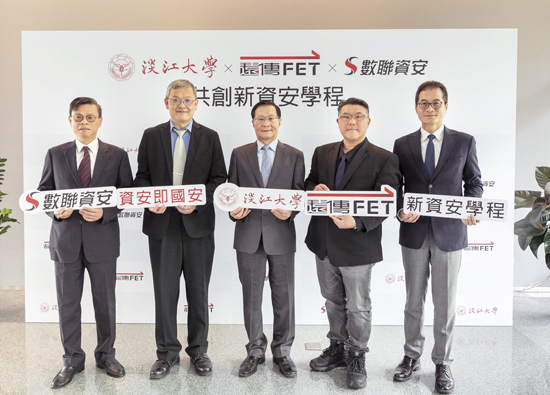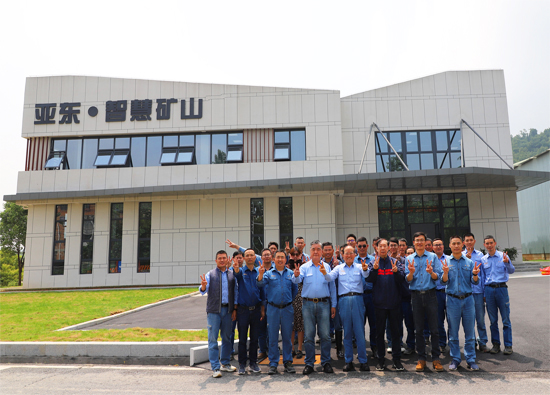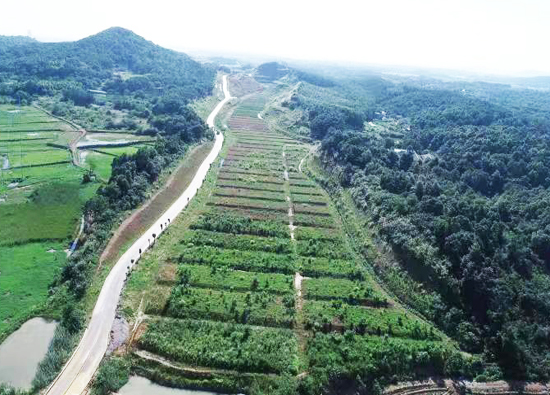07.2023 Group Briefing
U-Ming Marine Transport Convenes 2023 Regular Shareholders' Meeting
U-Ming Marine Transport / Huang Yizhen

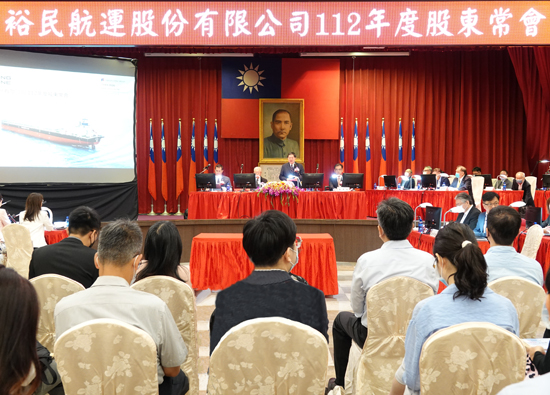
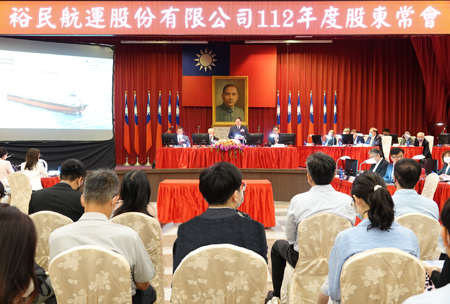 U-Ming Marine Transport held a regular shareholders' meeting on June 13th to report its performance to shareholders. In 2022, the consolidated revenue was NTD14.170 billion, with a post tax surplus and EPS of NTD44.06 billion and NTD5.21 billion, respectively. At the meeting, proposals were passed on the 2022 financial statements and earnings distribution, as well as the issuance of a cash dividend of NTD3 per share to maintain a high cash dividend yield. The total amount of retained undistributed earnings and statutory surplus reserves available for distribution on the account is NTD16.323 billion, with a total of NTD19.31 per share available for future annual dividend distribution, which will continue to be given back to shareholders.
U-Ming Marine Transport held a regular shareholders' meeting on June 13th to report its performance to shareholders. In 2022, the consolidated revenue was NTD14.170 billion, with a post tax surplus and EPS of NTD44.06 billion and NTD5.21 billion, respectively. At the meeting, proposals were passed on the 2022 financial statements and earnings distribution, as well as the issuance of a cash dividend of NTD3 per share to maintain a high cash dividend yield. The total amount of retained undistributed earnings and statutory surplus reserves available for distribution on the account is NTD16.323 billion, with a total of NTD19.31 per share available for future annual dividend distribution, which will continue to be given back to shareholders.Overview of the Shipping Market
In 2022, factors such as the Russo-Ukrainian War, geopolitics, inflation and interest rate rise, and the COVID-19 will hamper global economic growth, and many uncertainties will also affect the demand for bulk shipping. The Baltic Dry Index (BDI) averaged 1934 points throughout the year, a decrease of 34% compared to the same period in 2021. It is worth mentioning that by the end of 2022, China's economy will focus on "stable growth", and the macro policy will be loose and positive. After the 20th National Congress of the Chinese Communist Party, the economic strategy will remain positive, and the official policy and development financial instruments will increase assistance, which will be conducive to the growth of bulk shipping demand.
On the other hand, the International Monetary Fund (IMF) predicted in April 2023 that the global GDP growth rate would be 2.8% this year, slower than the 3.4% growth rate in 2022, affecting the demand of the bulk shipping market. Especially after China implemented a production restriction policy in the steel industry, the construction area of newly started real estate decreased, which in turn suppressed the demand for ore imports; In addition, due to the easing of the epidemic and the reduction of ship congestion, the average daily rent of various types of bulk carriers in the first five months of 2023 has declined compared to the same period last year. It is expected that with the easing of inflation and the upcoming peak season for bulk raw material exports, the shipping boom is expected to gradually rebound in the second half of the year.
Fleet replacement, energy conservation and efficiency enhancement
The U-Ming Marine Transport fleet continues to replace the old with the new, with up to 94% of its own bulk carriers being environmentally friendly, far higher than the market average of 32%; The average age of the bulk carrier fleet is 5.5 years, far lower than the average of 11.6 years in the bulk carrier market. Environmental protection and youth are the two major competitive advantages of the U-Ming Marine Transport fleet, coupled with a professional work team and efficient business approach, providing a solid foundation for operational growth. At present, there are still 6 ships under construction, and the new ships are expected to be delivered one after another before 2024, which will help the company's performance achieve better results.
Committed to sustainable ESG operations
The sustainable operating performance of U-Ming Marine Transport has been recognized by domestic and international awards, including the 2022 "Taiwan Corporate Sustainability Award - Gold Award in the transportation industry, and being listed as the" FTSE4Good TIP Taiwan ESG Index "sustainability stock; We also signed the Climate Initiative of the R20 Regional Organization for Climate Action, joined the Getting to Zero Coalition international organization, and committed to building ships powered by zero carbon fuel to achieve the goal of net zero carbon emissions in the ocean.
Future Sustainability Development Goals and Strategic Directions
The U-Ming Marine Transport fleet will move towards a low-carbon and zero carbon fleet. In addition to measures such as installing wind wing equipment for existing ships or using biomass fuels as power, it is also evaluating the construction of zero emission carbon green energy ships powered by clean energy sources such as methanol, hydrogen, or ammonia, and planning to develop joint ventures for LNG ships to achieve the sustainable goal of carbon neutrality by 2050. The company is committed to sustainable shipping, in line with the idea that modern society attaches importance to environmental protection, and also focuses on developing zero carbon emission solutions to reduce the Carbon footprint of ships. In addition, disciplined capital management helps maintain the competitive advantage of the fleet.
Fleet Information
U-Ming Marine Transport currently has Capesize, Panamax, Post Panamax, Ultramax, cement ships and VLOC ships, including four LNG dual fuel powered bulk carriers, plus joint venture, escrow fleet and personnel transport ships related to the wind power industry. The fleet has a total capacity of 72 ships, with a total Deadweight tonnage of 8.77 million tons. There are also subsidiaries in Singapore, Hong Kong, Xiamen, and other regions overseas.
#


